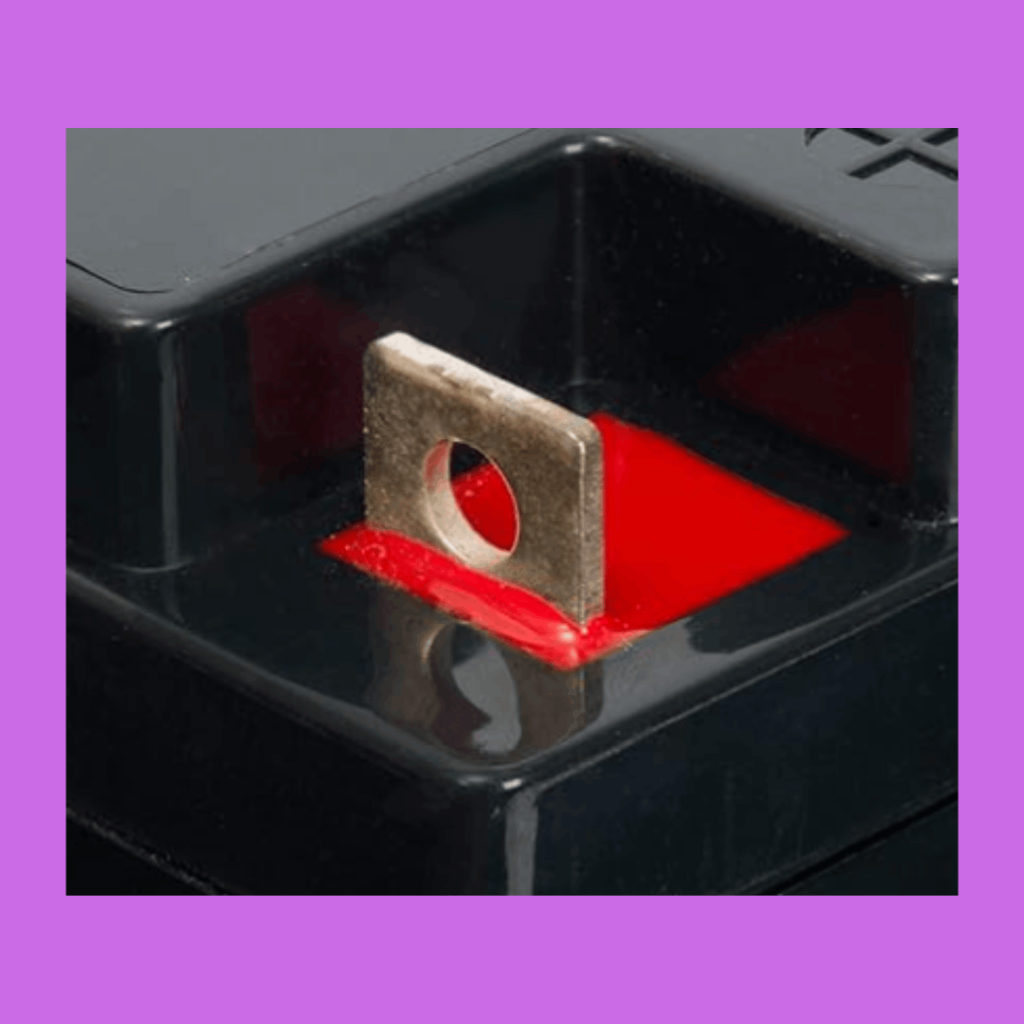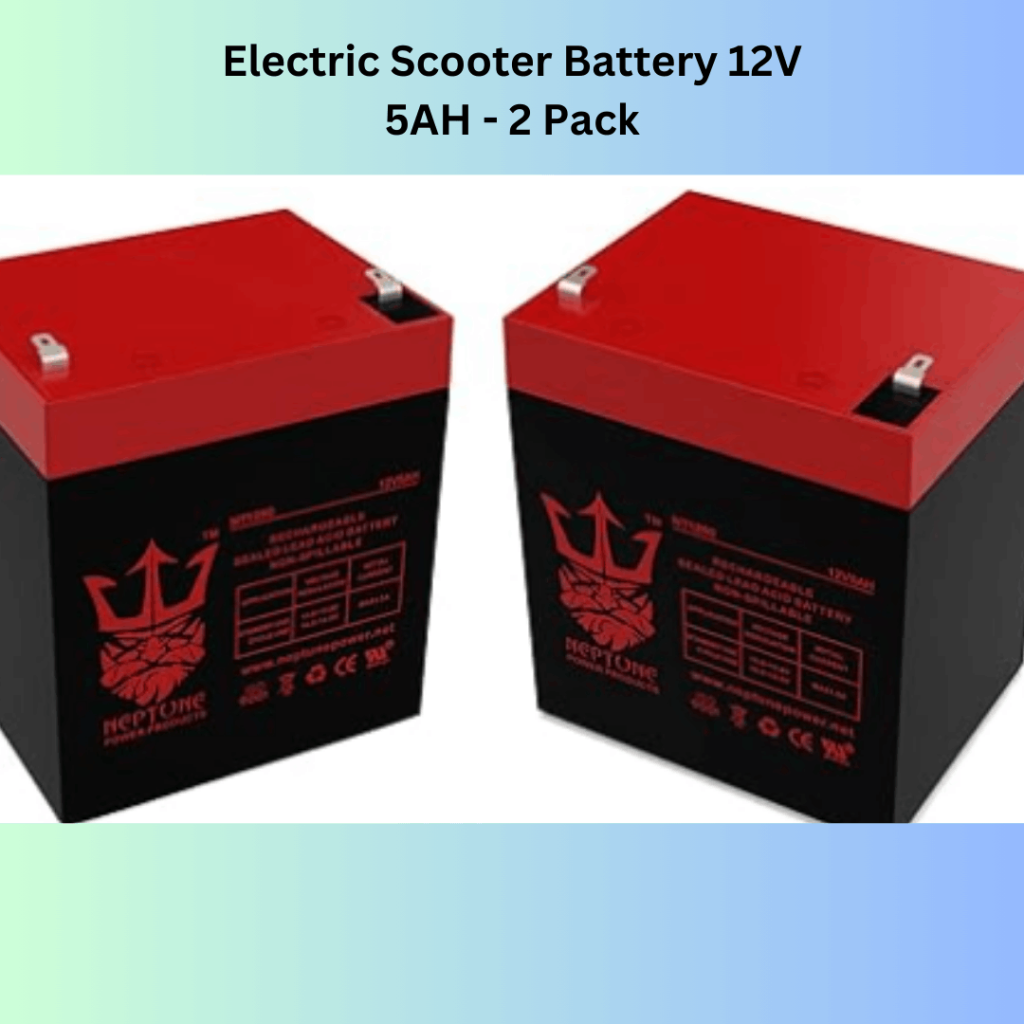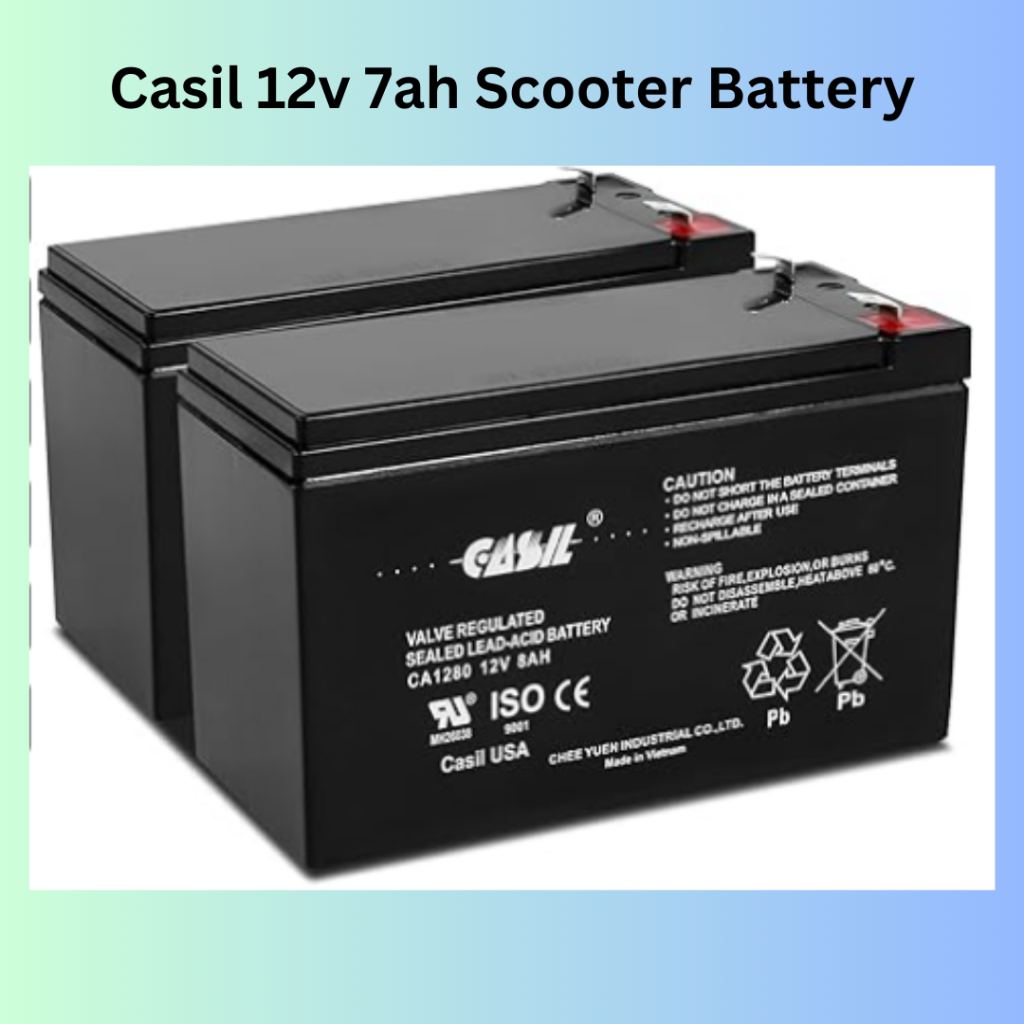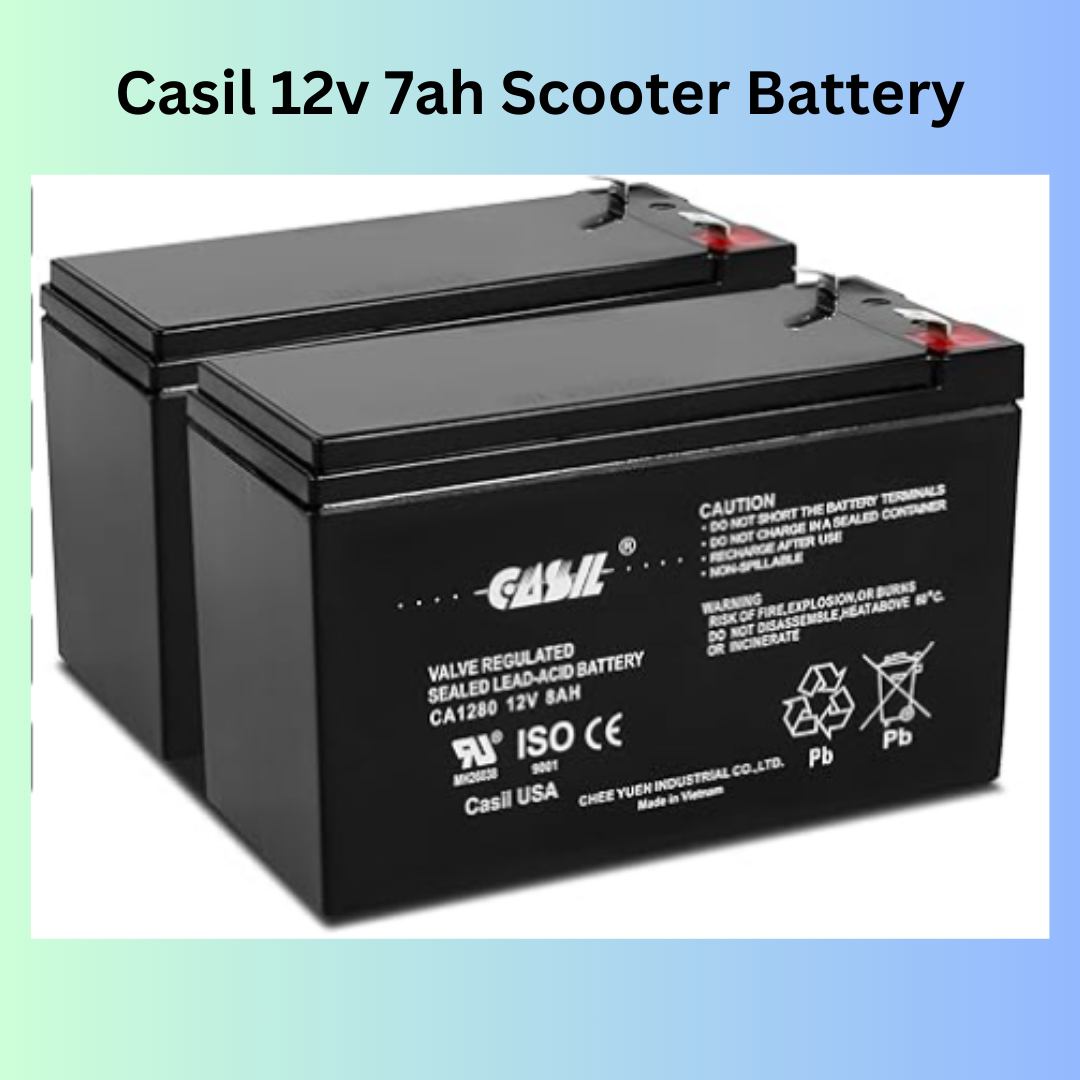Scooter batteries are a crucial component that powers electric scooters, ensuring they run efficiently and reliably. They come in various types and specifications, each designed to meet different performance needs and preferences. Understanding the features, types, and maintenance of scooter batteries can help you make informed decisions and extend the lifespan of your scooter. Scooters are fun and easy to ride. But did you know that scooters need batteries to run? In this article, we will talk all about scooter batteries. This will help you understand how they work and why they are important.
What is a Scooter Battery?
A scooter battery is a special type of battery. It helps the scooter to move. Just like you need food to have energy, a scooter needs a battery to have power. Without a battery, a scooter cannot run.
Types of Scooter Batteries
There are different types of scooter batteries. Let’s look at some of them:
- Lead-Acid Batteries: These are the oldest type of scooter batteries. They are heavy and big but also very strong. They are often used in older scooters.
- Lithium-Ion Batteries: These are newer and better. They are lighter and last longer. Many new scooters use these batteries because they are very good.
- Nickel-Metal Hydride Batteries: These are also good but not as common as the other two. They can store a lot of energy but are a bit heavy.
Why Scooter Batteries are Important
Scooter batteries are very important for many reasons:
- Power: They give power to the scooter to move. Without a battery, the scooter will not work.
- Speed: A good battery can make the scooter go faster.
- Distance: A strong battery lets you travel a long distance without stopping.
How to Take Care of Your Scooter Battery
Taking care of your scooter battery is very important. Here are some tips to help you:
- Charge Regularly: Always charge your battery when it is low. Do not let it go empty.
- Keep it Clean: Make sure the battery and its connections are clean. Dirt can stop it from working well.
- Store Properly: If you are not using the scooter for a long time, take the battery out and store it in a cool, dry place.

When to Replace Your Scooter Battery
Even if you take good care of your scooter battery, it will not last forever. Here are some signs that you need a new battery:
- Low Power: If the scooter is not moving fast or stops often, it may be time for a new battery.
- Short Distance: If you cannot travel as far as you used to, the battery may be weak.
- Old Age: If the battery is very old, it may be time to replace it. Most scooter batteries last for about 2 to 3 years.
How to Choose the Right Scooter Battery
Choosing the right scooter battery is important. Here are some things to think about:
- Type: Choose the type of battery that fits your scooter. Check if it needs a lead-acid, lithium-ion, or nickel-metal hydride battery.
- Size: Make sure the battery fits in your scooter. Check the size before you buy it.
- Power: Choose a battery with enough power for your needs. If you travel a lot, get a strong battery.
Where to Buy Scooter Batteries
You can buy scooter batteries in many places. Here are some options:
- Online Stores: Many websites sell scooter batteries. You can read reviews and choose the best one.
- Local Shops: You can also buy batteries in local scooter shops. You can ask the staff for help.
- Supermarkets: Some big supermarkets also sell scooter batteries.
Scooter Batteries and the Environment
It is important to think about the environment when using scooter batteries. Here are some tips:
- Recycle: Always recycle old batteries. Do not throw them in the trash.
- Choose Eco-Friendly Batteries: Some batteries are better for the environment. Look for these when you buy a new one.
- Use Efficiently: Use your battery wisely to make it last longer. This way, you will need fewer batteries over time.
Fun Facts About Scooter Batteries
Here are some fun facts about scooter batteries:
- Fast Charging: Some new batteries can charge very fast. This means you can start riding your scooter quickly.
- Long Distance: Some batteries let you travel more than 50 miles on a single charge.
- Smart Batteries: Some scooter batteries are very smart. They can show you how much power is left and even tell you if there is a problem.
Scooter Battery Safety Tips
Scooter batteries are safe if you use them correctly. Here are some safety tips:
- Do Not Overcharge: Do not leave the battery charging for too long. This can make it hot and damage it.
- Keep Away from Water: Do not let the battery get wet. Water can damage it.
- Handle Carefully: Be careful when you take out or put in the battery. Do not drop it or hit it.

Maintenance Tips
Proper maintenance can significantly extend the lifespan of your scooter battery and ensure optimal performance. Here are some tips:
1. Regular Charging:
- Avoid letting the battery completely discharge. Regularly charging the battery, even if it’s not fully depleted, can prolong its lifespan.
2. Proper Storage:
- Store the battery in a cool, dry place away from direct sunlight and extreme temperatures. For long-term storage, keep the battery partially charged (around 50%).
3. Clean Connections:
- Ensure the battery terminals and connections are clean and free from corrosion. Use a soft cloth to wipe away any dirt or debris.
4. Use the Right Charger:
- Always use the charger provided by the manufacturer or one that is compatible with your battery type and specifications.
5. Avoid Overcharging:
- Overcharging can damage the battery. Use chargers with automatic shut-off features or unplug the charger once the battery is fully charged.
6. Monitor Performance:
- Regularly check the battery’s performance. If you notice a significant drop in range or power, it may be time to replace the battery.
Environmental Impact and Recycling
Scooter batteries, especially lead-acid and NiMH batteries, contain materials that can be harmful to the environment if not disposed of properly. Here are some considerations:
1. Recycling Programs:
- Many manufacturers and local governments offer battery recycling programs. Make use of these programs to dispose of old batteries responsibly.
2. Environmental Impact:
- Lithium-ion batteries are more environmentally friendly compared to lead-acid batteries. However, all types of batteries should be recycled to minimize their environmental impact.
3. Sustainable Practices:
- Consider batteries from manufacturers that use sustainable practices and materials. Some companies are developing batteries with lower environmental footprints.
Key Features to Consider
1. Capacity (Ah – Ampere-hour):
- The capacity of a scooter battery is measured in ampere-hours (Ah). It indicates how much charge the battery can hold. Higher capacity means a longer range per charge.
2. Voltage (V):
- The voltage of the battery affects the power output. Common voltages for scooter batteries are 12V, 24V, 36V, and 48V. Higher voltage typically provides better performance and speed.
3. Charging Time:
- Charging time varies depending on the battery type and capacity. Lithium-ion batteries charge faster compared to lead-acid and NiMH batteries.
4. Lifespan:
- Battery lifespan is measured in charge cycles. A charge cycle is a complete charge and discharge. Lithium-ion batteries usually have the longest lifespan, followed by NiMH and lead-acid batteries.
5. Weight:
- The weight of the battery affects the overall weight of the scooter, which can impact its portability and handling. Lithium-ion batteries are the lightest option available.
6. Size and Fit:
- Ensure that the battery you choose fits the battery compartment of your scooter. Manufacturers provide specific dimensions and compatibility information.

Frequently Asked Questions
What Types Of Scooter Batteries Exist?
There are three main types: lead-acid, lithium-ion, and nickel-metal hydride batteries.
How Long Do Scooter Batteries Last?
Scooter batteries typically last between 2 to 4 years, depending on usage and maintenance.
How To Maintain Scooter Battery Life?
Regularly charge and avoid deep discharges. Store in a cool, dry place and inspect for damage.
Can I Replace My Scooter Battery?
Yes, you can replace your scooter battery. Ensure compatibility with your scooter model.
How To Choose The Right Scooter Battery?
Check voltage, capacity, and battery type. Ensure it matches your scooter’s specifications.
Are Lithium-ion Batteries Better For Scooters?
Lithium-ion batteries are lighter, more efficient, and have a longer lifespan compared to lead-acid batteries.
What Are Signs Of A Failing Scooter Battery?
Reduced performance, difficulty starting, and shorter charge cycles indicate a failing scooter battery.
How To Safely Dispose Of Scooter Batteries?
Take them to a recycling center or a retailer that accepts battery disposals to ensure proper handling.
Conclusion
Scooter batteries are very important. They help your scooter to move, go fast, and travel far. By taking good care of your battery, you can enjoy riding your scooter for a long time. Always choose the right battery and remember to recycle old ones. Scooter batteries are a vital component that determines the performance, range, and reliability of your electric scooter. Understanding the different types of batteries, their features, and maintenance requirements can help you choose the right battery for your needs and ensure your scooter operates efficiently. Proper care and responsible disposal of batteries not only enhance their lifespan but also contribute to environmental sustainability. Whether you prefer the affordability of lead-acid, the performance of lithium-ion, or the balance of NiMH batteries, informed choices and good practices will keep your scooter running smoothly for years to come. Happy riding!

